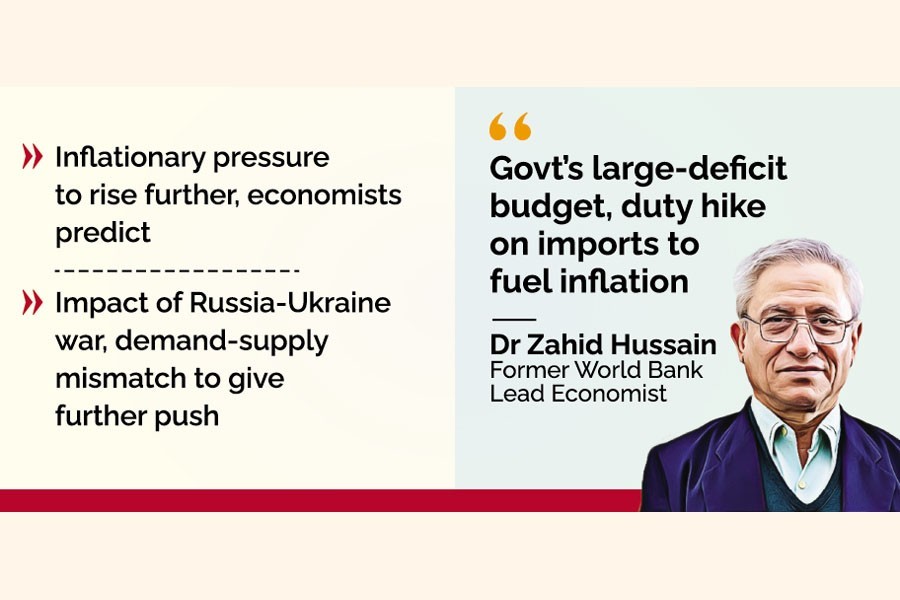Bangladeshis also feel bitter bite of inflation as its point-to-point rate climbed to 7.56 per cent last month, a nine-year high, amid erratic price rises.
Meanwhile, the average inflation rate in the last fiscal year (FY), 2021-22, was recorded at 6.15 per cent, same as the previous FY2021, according to Bangladesh Bureau of Statistics (BBS) data released Tuesday.
The month-on-month inflation rate on point-to-point basis was previously recorded highest at 8.05 per cent nine years ago in June 2013, an FE analysis has found.
The rate of the point-to-point inflation in the previous month, May, was 7.42 per cent, which was also the highest in seven years, the BBS data showed.
The inflation in June last year (2021) was recorded much lower at 5.64 per cent.
The month-on-month higher consumer price index (CPI) persisted in the last month too as inflationary pressures on both the food and non-food items in June were higher, the BBS data showed.
The rate of point-to-point inflation on food items rose a bit to 8.37 per cent in the past month, compared to 8.30 per cent in the previous month, May, the national statistical body showed.
The inflation on account of non-food items also rose, to 6.33 per cent, in June from 6.08 per cent in May, according to the official count, which is described by economists as conservative.
Economists forecast that Bangladesh's inflationary pressure will be rising in the days ahead, too, due to the impact of the Russia-Ukraine war and internal "demand-supply mismatch".
They think it will be very challenging for the government to tame the inflationary pressure as it is expected to be higher in the coming days.
People, especially middle-and lower-income groups, have already been struggling with higher prices of essentials over the months as rice, flour, pulses, sugar, cooking oils, and vegetables are maintaining a higher rate at the retail markets.
Like in the previous month, the rural people are the worst victim of the CPI pressure as the point-to-point inflation in June was recorded at 8.09 per cent in the countryside.
On the other hand, the inflation rate in urban areas was comparatively lower at 6.62 per cent in the last month.
The food inflation is biting the rural people high as its point-to-point rate swelled to 8.93 per cent in June.
The non-food inflation rate was also maintaining a higher trend in the last month as it rose to 6.51 per cent from 6.26 per cent in May.
In the urban areas, the month-on-month food inflation increased to 7.11 per cent in June than that of 7.08 per cent in May.
The non-food inflation in the urban areas also increased to 6.08 per cent last month compared to 5.85 per cent in the previous month of May.
Former World Bank Lead Economist Dr Zahid Hussain says the inflationary pressure will not be contained as the government's fiscal policy is expansionary.
The government has announced a large-deficit national budget and increased the import duty on many products, which will cause hike in the inflation, he adds.
"When the country has harvested the boro rice a month ago, then how the price of rice could increase? Actually, there may be production shortfall. The government's rice-production data are doubtful," he says.
So, the mismanagement of the demand-supply situation is one of the reasons for the higher inflationary pressure in Bangladesh, Dr Hussain concludes.


